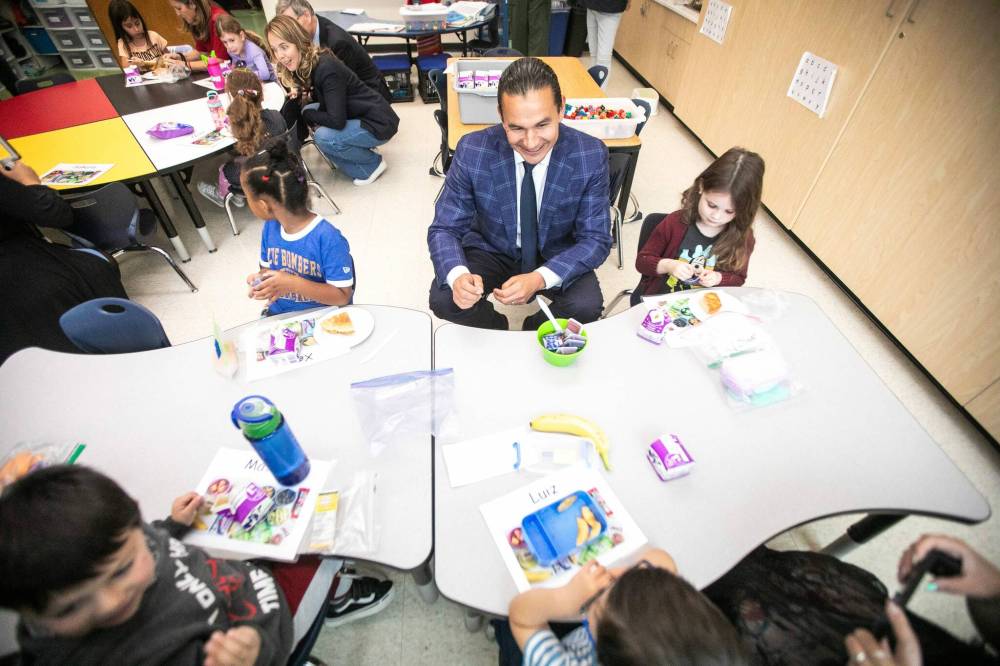Report illustrates need for school food programs
Advertisement
Read this article for free:
or
Already have an account? Log in here »
We need your support!
Local journalism needs your support!
As we navigate through unprecedented times, our journalists are working harder than ever to bring you the latest local updates to keep you safe and informed.
Now, more than ever, we need your support.
Starting at $15.99 plus taxes every four weeks you can access your Brandon Sun online and full access to all content as it appears on our website.
Subscribe Nowor call circulation directly at (204) 727-0527.
Your pledge helps to ensure we provide the news that matters most to your community!
To continue reading, please subscribe:
Add Brandon Sun access to your Free Press subscription for only an additional
$1 for the first 4 weeks*
*Your next subscription payment will increase by $1.00 and you will be charged $20.00 plus GST for four weeks. After four weeks, your payment will increase to $24.00 plus GST every four weeks.
Read unlimited articles for free today:
or
Already have an account? Log in here »
Hey there, time traveller!
This article was published 09/12/2024 (380 days ago), so information in it may no longer be current.
WINNIPEG — About 73 per cent of public schools in Manitoba were feeding students last year as the NDP began to scale up free nutrition programs.
A new report shows 30 additional schools were running at least one formal program — whether it was no-cost breakfast, lunch, snack or a standalone milk initiative — between the 2022-23 and 2023-24 school years.
Manitoba Education released its second report on school nutrition, the product of a 2023 law that requires the department in charge of kindergarten-to-Grade 12 schooling to publish annual recaps, this month.

Last year, 61,773 children and youth — 32 per cent of Manitoba’s overall enrolment — ate daily at school in free programs.
That’s up from 54,257 pupils who were fed through a patchwork of programs during the previous year, representing about 29 per cent of the student population.
The most common model continues to be snack programs, followed by breakfast plans.
“Snack programs are the easiest to deliver. Most of them are what we call a ‘grab-and-go’ or something like that. It doesn’t require a huge amount of prep,” said Wendy Bloomfield, a veteran trustee who has long been involved with the Child Nutrition Council of Manitoba.
École Secondaire Sisler High, one of the largest high schools in the province located in northwest Winnipeg, served a record average of 1,000 students daily in 2023-24.
Transcona’s Bernie Wolfe School was next in line, with 800 regular program participants. Northlands Parkway Collegiate in Winkler provided meals to an average of 600 teenagers.
The council board, on which Bloomfield is a volunteer member, has lobbied for a universal food program dating back to 2017-18.
“We’ve got one of the highest, if not the highest child poverty rate in the country. We have a very high level of child diabetes in Manitoba and so, we continually put together presentations and explained things to government about (related) stressors on the schools,” Bloomfield said.
As far as she is concerned, the fallout of the COVID-19 pandemic, rising grocery prices and the organization’s advocacy efforts, including a 2020 decision to create a wait-list of grant applicants to draw attention to demand, have put pressure on recent governments.
Former premier Heather Stefanson’s government cleared the initial wait-list and doubled annual funding for the council that subsidizes school programs and hires dietitians to provide nutritional advice in September 2022.
Shortly after Wab Kinew was elected premier, his government earmarked $30 million for a “universally accessible” school food program in its first budget. The commitment, a key plank in the NDP’s 2023 campaign, included another substantial top-up for the nutrition council.
The organization was allotted nearly $5 million in public funds for the current fiscal year. Over the last three years, its staff team has grown from three to eight.
The charity began supporting upwards of 100 more programs between 2021-22 and 2023-24.
Manitoba joined Canada’s school food program this fall, and is expected to receive $17.2 million for the most needy local schools over the next three years.
A spokesperson for Tracy Schmidt, acting education minister, indicated the province anticipates next year’s nutrition program report will indicate 100 per cent of schools serve free food in Manitoba.
» Winnipeg Free Press
